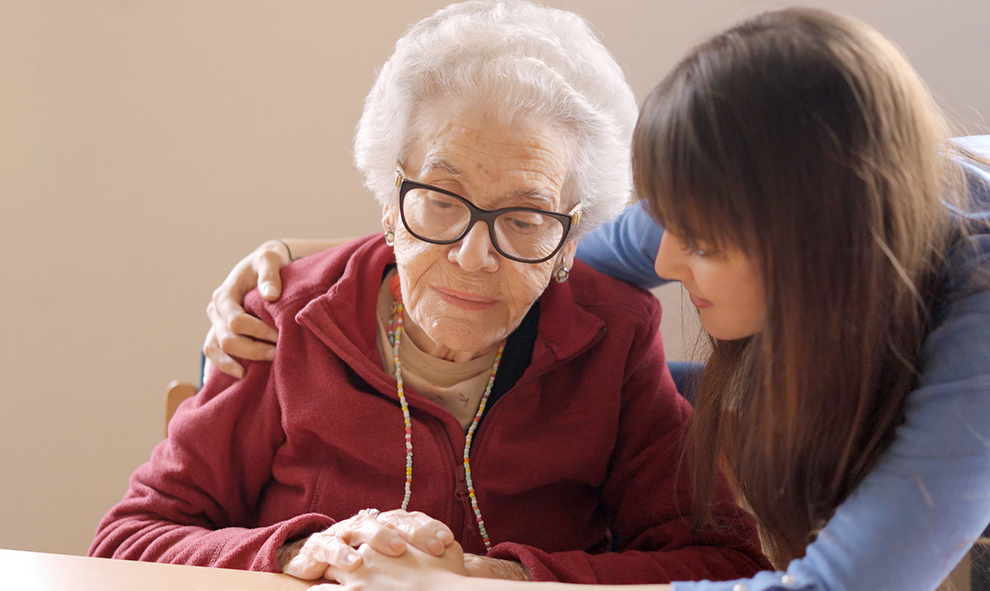
Nursing professor funded for dementia care study
College of Nursing professor Dr. Genevieve Thompson recently received $750,000 in funding from the Canadian Institutes of Health Research (CIHR) for a three-year study to support communication and decision-making for family caregivers of people living with dementia.
The study, Moving upstream: Integrating a palliative approach into dementia care, will involve up to eight long-term care homes in New Brunswick, Ontario, Manitoba and Saskatchewan, as well as Alzheimer’s Society members in those provinces and Alberta.
Thompson, who holds a UM research chair in person-directed living, supported through Riverview Health Centre and the College of Nursing, Rady Faculty of Health Sciences, said the study will ensure early conversations about the nature and progression of dementia, defining essential decision-making points and discussions about changing care needs as the disease progresses.
She said that within the long-term care environment, these discussions often occur late, both in terms of the stage of illness and proximity to death.

Genevieve Thompson
“We often think of it [dementia] as just a brain disease, but the brain controls all our functions. We tend to think of it as memory loss, but there’s a whole host of other things that go along with dementia, and they’re fairly predictable for most people, like changes with swallowing or the ability to get up and walk,” she said.
“(CIHR was) looking for projects that already had provided some evidence of effectiveness and could be scaled up.”
The study builds upon the Strengthening Palliative Approach to Care in Long-Term Care (SPA-LTC) program, a national initiative led by Dr. Sharon Kaasalainen at McMaster University and a team of four researchers, including Thompson. The initiative began in 2015, adapting tools and resources to be focused specifically on dementia care.
Thompson said pilot work and randomized controlled trials found that the SPA-LTC program decreased emergency visits in the months leading up to a person’s death.
“It provides care that coincides with the wishes and goals of residents, improved family care partner experience, and grief and bereavement support along with staff feeling more empowered in the provision of a palliative approach to care.”
Components of the project will include the development of “champions” in each of the settings – people who are already seen as go-to contacts and who are comfortable talking about palliative approaches – education, family meetings and the distribution of illness-specific pamphlets and other materials.
“We’re also developing a comfort care booklet with options for a person living with advanced dementia. It will provide care options and opportunities to actively participate in decision-making.”
Thompson hopes the program will be picked up nationally following the three-year study. She would like to see a dementia-specific portal on the SPA-LTC website.
“We’ve had buy-in from Alzheimer’s Canada to say this is a really important topic and project, so we could develop a model with this toolkit that other coordinators could then use.






